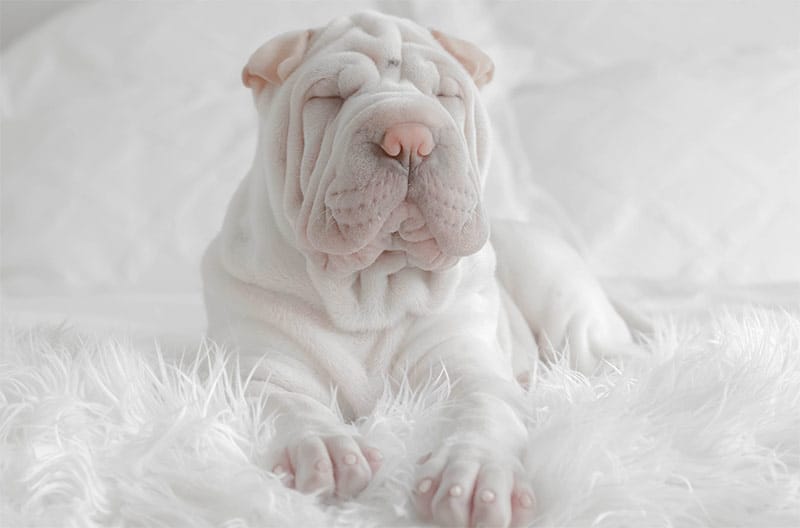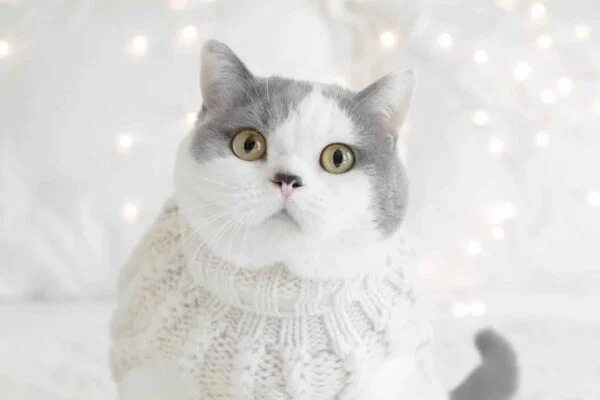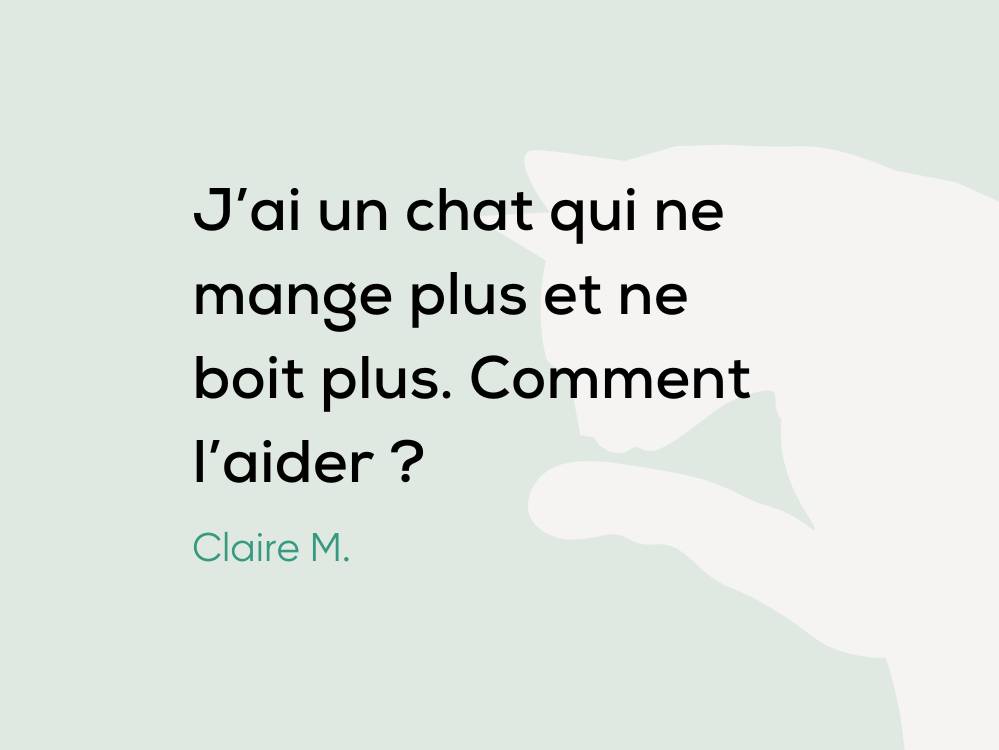Expert-Review, Cat, Behavior
I have a cat that no longer eats or drinks. How can I help him?
Cats are sometimes strange, occasionally whimsical, and often misunderstood creatures.
Sometimes they do crazy things for a short period of time, sometimes they start acting differently over time for obscure reasons.
But rest assured, they will always behave strangely for one reason or another.
However, the most common type of alarming behavior is when a cat suddenly stops eating or drinking.
What to do if your pet stops eating and drinking for no reason? When should you start to worry? Should you call your vet? What are his chances of survival?
Before you start panicking, take a deep breath and try to relax. There are many reasons why a cat refuses to eat or drink.
Some of these are potentially dangerous for your furball and could indicate an undiagnosed health problem. Others, however, are completely natural and harmless.
So, without further ado, here are the reasons why your cat refuses to eat or drink and the right steps to take to solve the problem.
In any case, if you are concerned, consult a veterinarian.
Why doesn’t my cat want to eat or drink? 7 common reasons
There are two types of factors behind a cat’s behavior that stops eating and drinking; physical and emotional.
Here are common reasons why your cat may not be eating or drinking:
1. The conditions are not met
The location, size or condition of your cat’s bowl is just as essential as its sleeping area or litter box.
So cats of all breeds and ages may refuse to use their food and water bowls if they don’t like them .
For example, if the bowls are too deep , your cat is likely not to use it because it is difficult to keep from getting wet or dirtying their whiskers.
Also, if you don’t clean the bowls after every meal , your cat will easily smell it and is likely to refuse the food you offer him. Just like if you had to use dirty dishes or glasses.
Another reason bowls can be a problem is if they are too close together .
Some cats don’t mind. However, others can’t overcome their innate instinct to hunt for food and find water in the wild.
As a feline, your cat may want their food bowl to be away from their water source.
Finally, your cat may refuse to drink from anything other than a pet water fountain or faucet. In other words, your cat wants a source of fresh, running water.
2. The whim
Cat temperament is a behavior that all cats share. Even the coolest, most tolerant, and calmest cat can become temperamental.
If your cat refuses to use his food bowl out of whim, there are 3 basic reasons for this.
First, he knows that you have hidden a supplement or medication in his food or water.
Second, he waits to find something tastier than the food he already has .
Some cats also get bored very easily and you will need to vary their diet. Others can only tolerate one brand of kibble and sulk as soon as you change it!
Finally, he may think you’re going to share your food at the table with him. After all, the grass is always greener on the other side of the fence.
3. Indigestion
It is possible that your cat is suffering from indigestion and that is why he is refusing to eat or drink.
Digestive upset can be caused by a variety of things, including hairballs .
It is also possible that your cat may be nauseous if the last thing he ate was difficult to digest.
Moreover, he may also refuse to take fluids or food because he is suffering from another problem such as diarrhea , stomach pain and other problems related to poor digestion.
4. Lack of control over nutritional and water intake
It is also possible that you are overfeeding your cat without even realizing it.
Feeding cats too frequently or giving them high-calorie supplements can quickly make them feel full.
Likewise, if you overfeed him by giving him more food than necessary.
It is natural for most cats to stop eating if they are still full from their last meal, especially if they are not physically active or if that meal was too large for them.
Likewise, if you feed your cat canned wet food, he will reach his daily water intake faster than if you feed him dry food because of the high amount of moisture in canned cat food.
5. The age factor
Age plays a crucial role in every cat’s eating habits.
For example, young cats eat more because they are still growing. Cats of all ages like to eat several small meals a day .
Older felines often have problems with loss of appetite, slow metabolism, indigestion and other similar issues, which can make it difficult for them to eat.
In this case, you should consult a veterinarian.
6. Psychological problems
Cats can experience a wide range of emotions, just like we humans.
Negative emotions such as depression, stress and agitation can cause loss of appetite.
Felines can also suffer from separation anxiety , especially young kittens or cats that have recently moved to a new home or when left home alone for the holidays.
7. A more serious health problem
The most worrying causes of not drinking or eating are health problems. Toothaches, abscesses, kidney failure , tapeworms and other more serious illnesses can indeed cause a loss of appetite.
However, if there is an underlying undiagnosed illness causing the refusal to eat or drink, not knowing about it and not treating it could be potentially fatal for your cat.
My cat no longer eats or drinks: Survival
How long can a cat go without eating?
You may be wondering, how long can a cat go without eating? A healthy adult cat can usually go without eating for about 3 to 7 days , or much longer, but this will not be without consequences for its health.
How long can a cat go without drinking?
An adult cat can survive without drinking for about 2 to 4 days , although this can vary depending on ambient temperature and the cat’s physical activity.
How long can a kitten go without eating?
A kitten needs to eat more frequently due to their increased nutritional needs. A kitten under 4 weeks old should not go without eating for more than a few hours, while an older kitten between 4 and 8 weeks old can usually go about 6 hours without eating.
My cat doesn’t want to eat anymore: When should you worry?
If your cat is no longer eating and this is accompanied by other symptoms, there is cause for concern.
Here are the signs to look for that pose a danger to your cat if combined.
1. I have a cat that no longer eats or drinks.
If, in addition to not wanting to eat, your cat does not want to drink, this should alert you.
These are indeed two signs that can reveal a serious health problem. Especially since, just like diet, hydration is essential for a cat’s survival.
There are many reasons why a cat may stop eating or drinking, including dental problems, infections, gastrointestinal upset, liver or kidney disease, stress, pain, or other health issues.
If your cat has stopped eating or drinking for more than 24 hours , it is important to consult a veterinarian to determine the cause of this behavior and receive appropriate advice.
2. I have a cat that drools and no longer eats
If your cat is drooling and not eating, this could be a sign of a health problem and it is recommended that you consult a veterinarian without delay.
Excessive drooling in cats, also called hypersalivation or sialorrhea, can be caused by a variety of underlying medical conditions, some of which require immediate medical attention .
There are several reasons why a cat may drool and refuse to eat, including dental problems such as gum infections or broken teeth, mouth infections, ulcers, poisoning, or allergies.
Excessive drooling can also lead to dehydration in cats, as they lose fluid through salivation.
Don’t let this situation go unattended. The sooner you get a diagnosis and treatment, the better your cat’s chances of recovery.
3. My cat hasn’t eaten for 3 days
If your cat has not eaten for 3 days , it is urgent to consult a veterinarian as soon as possible.
Cats are animals with specific nutritional needs and not eating for an extended period of time can lead to serious health problems, such as dehydration, rapid weight loss, liver problems and metabolic disorders.
Not eating for 3 days is an alarming sign and it is important not to wait any longer before consulting a veterinarian.
4. I have a cat that is no longer eating and is vomiting.
It happens that a cat stops eating and vomits . However, if your cat has not eaten for more than 24 hours and vomits frequently or persistently , it is advisable to make an appointment with the vet.
Again, in addition to being signs of a potential underlying illness, vomiting can prevent your cat from getting enough hydration.
5. My cat has a fever and is not eating anymore
If your cat has a fever and refuses to eat, it is important to see a veterinarian as soon as possible for a diagnosis and proper treatment.
Fever in cats can be caused by a variety of underlying conditions, such as bacterial, viral or parasitic infection, or other health problems.
6. My cat no longer eats, drinks or moves
If your cat is no longer eating, drinking, and appears lethargic, this may be a sign of serious medical distress and requires immediate medical attention . It is important to consult a veterinarian as soon as possible in such a situation.
In general, in cases of anorexia (refusal to eat), risk of dehydration (refusal to drink) and lethargy in a cat, it is recommended to consult a veterinarian within 24 hours, or even sooner if possible .
Not eating, not drinking, and being inactive can be signs of serious health problems in cats, such as severe infection, intestinal obstruction, kidney failure, or other potentially dangerous conditions.
7. I have a cat that hides and no longer eats
It is often said that animals hide to die. Hiding behavior can actually be a sign of distress, especially if your cat is no longer eating.
Cats are indeed animals that can mask their symptoms of illness, and refusal to eat combined with hiding can be a sign of a serious underlying health problem, such as gastrointestinal disease, pain, infection, or other medical issues.
The exact length of time before seeing a veterinarian may vary depending on your cat’s specific situation, overall health, medical history, and the presence of other associated symptoms.
However, it is recommended not to wait too long and to consult a veterinarian as soon as possible.
8. My cat is not eating and is sleeping
Refusal to eat and excessive sleeping can be signs of underlying health problems in cats, such as gastrointestinal disease, infection, or other medical issues.
In general, it is recommended to consult a veterinarian within 24 hours if your cat is not eating and sleeping excessively.
However, if you observe other symptoms such as vomiting, diarrhea , difficulty breathing, or if your cat seems very lethargic or shows other signs of medical distress, it is best to seek veterinary care more quickly, even urgently if necessary.
It is important not to delay seeing the vet when your cat is exhibiting such symptoms, as time can be a critical factor in diagnosing and treating health problems in pets.


